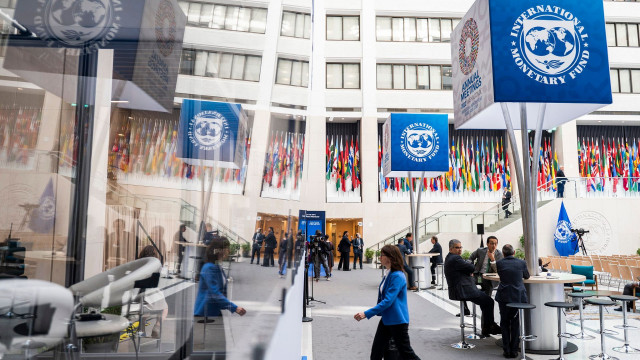Global finance leaders are convening in Washington this week for the semi-annual meetings of the International Monetary Fund (IMF) and the World Bank Group.
In the meantime, China has issued a stern warning, stating that it would retaliate against any nation that supports the United States’ efforts to isolate Beijing, as the trade conflict between these two major global powers intensifies and starts to involve additional countries.
This year's agenda is anticipated to focus heavily on one urgent matter: tariffs.
On April 2, President Trump announced tariffs of at least 10 percent on all imports to the U.S., impacting over 50 nations, including Nigeria, China, the United Kingdom, and Canada.
Some tariffs have escalated as high as 50 percent, with tariffs on Chinese goods raised from 104 percent to 125 percent.
These actions have raised significant alarm among global leaders, who are now looking for strategies to lessen the economic repercussions.
The meetings, which feature high-level discussions and individual negotiations, serve as a venue for finance ministers to discuss project financing, foreign investment, and debt relief.
Nonetheless, this year, the main focus is on how countries can lessen the effects of U.S. President Donald Trump’s far-reaching import tariffs, which have disrupted global trade since he took office again in January 2025.
Senior Director of the Atlantic Council’s GeoEconomics Centre, Josh Lipsky, characterized the situation as unparalleled.
“Trade wars will dominate the week, as will the bilateral talks that nearly every nation is attempting to engage in,” Lipsky remarked. “This Spring Meetings is unlike any other, with one predominant issue.”
The tariffs have already cast a shadow over the IMF’s economic projections, which are set to be released today.
IMF Managing Director Kristalina Georgieva has indicated that there could be “notable markdowns but not a recession,” noting increased uncertainty and market volatility resulting from the trade conflict.
While Georgieva remarked that the global economy remains relatively stable, she warned that negative perceptions could hinder economic activity.
CHINA’S warning comes amidst rising trade tensions, with Washington boosting tariffs on Chinese products to 145 percent while providing a temporary 90-day reprieve to certain other trading partners.
In a statement, China's Ministry of Commerce stated, “China firmly opposes any party reaching an agreement that undermines China’s interests. If that occurs, China will not accept it and will firmly implement reciprocal counter-measures.”
The ministry cautioned that such geopolitical trade maneuvers could lead to chaos in the global trading system, warning of a regression to the “law of the jungle,” where power dynamics take precedence over fair trade practices and multilateral collaboration.
Beijing has positioned itself as a protector of global economic stability, claiming that the U.S. is “abusing tariffs” and engaging in “unilateral bullying.”
The statement further reiterated China’s readiness to work with other countries to maintain international trade norms and uphold multilateral agreements.




















